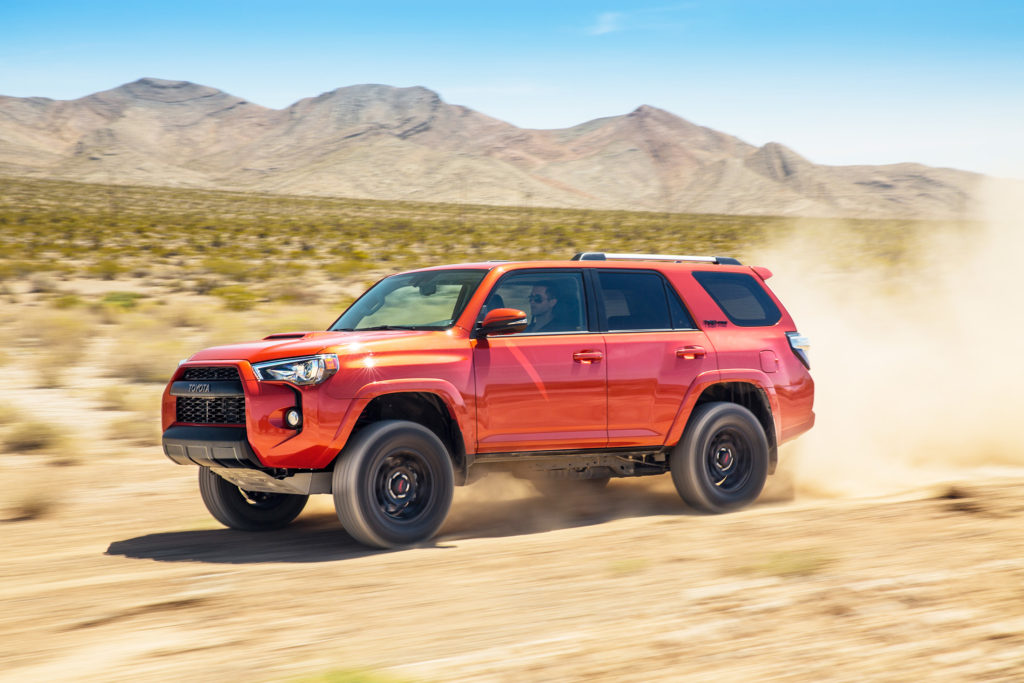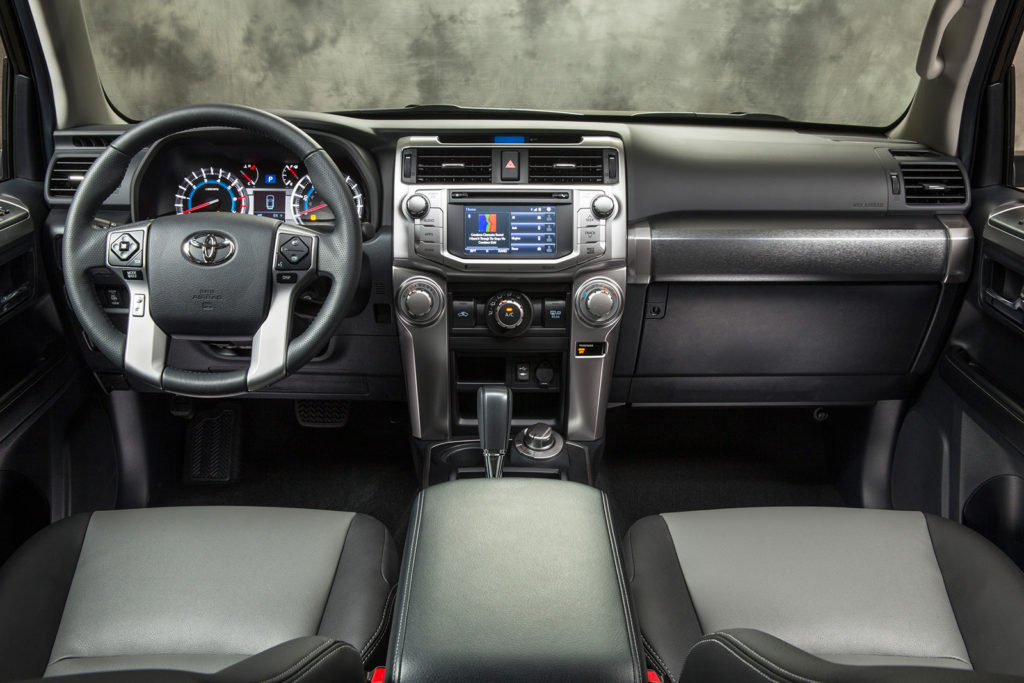Cargazing
By Derek Price
There’s no such thing as a perfect vehicle. The closest ones simply make the most palatable tradeoffs.
In the case of off-road vehicles like the Toyota 4Runner, those tradeoffs typically come in the form of road comfort, noise and fuel economy. All the attributes that make a vehicle great on the trails — high ground clearance, grippy tires, indestructible suspension bits and a big engine with lots of low-range torque — add up to a vehicle that’s just not perfect for highway use.
But the 4Runner comes close.
Even on the tough-as-nails 4Runner TRD Pro that I drove for a week, Toyota did a great job keeping the impact from all its off-road hardware to a minimum. It’s one of the few truly built-for-the-wilderness vehicles that I could live with on a daily basis.
Wind and road noise are reasonably quiet. The suspension doesn’t beat up your spine every time you hit a pothole. Even the maneuverability and visibility in tight parking lots is better than some mid-size crossovers I’ve driven.

Toyota’s 4Runner is a traditional SUV designed for off-road capability. The TRD Pro version, shown here, is customized at the factory for heavy use on the trails.
In fact, the only place the 4Runner really makes you pay for its capability is at the fuel pump. It’s rated for 17 mpg in city driving and 21 on the highway, a sure sign of its heavy, rugged design that most companies have dropped in favor of crossover vehicles.
That’s an important point of distinction. The 4Runner is one of the last true SUVs remaining in this segment, the rest having switched to car-like construction. Even some of the most famous SUV names, including the Ford Explorer and Nissan Pathfinder, are now built around lightweight unibody shells just like passenger sedans.
The 4Runner doesn’t follow that path, though. You can see the benefits from it on the trails and the drawbacks at the fuel pump.
For people who do serious off-roading, it’s hard to beat the everyday usability of this Toyota. At least, it’s tough to do at this price point.
The 4Runner starts at $34,010, a mere fraction of the $84,325 price tag of Toyota’s legendary luxury off-roader, the Land Cruiser. While the 4Runner isn’t as sumptuous, I bet there aren’t too many places a Land Cruiser can go that a 4Runner can’t. It seems to have inherited 90 percent of the Land Cruiser’s capability at 40 percent of the price, albeit without all the Ritz-Carlton trappings.
The TRD Pro version is the one you’ll want for serious off-roading, with its Bilstein high-performance shocks, special TRD front springs, Nitto tires and a beefy skid plate to protect the undercarriage from boulders and ruts. It’s ready to rock the trails straight from the factory.

The 4Runner’s cabin has a rugged feel, with big controls and roomy seats. It’s also impressively refined on the street considering its off-road credentials.
Oddly, you can buy a two-wheel-drive 4Runner, but I don’t see the point. The whole reason for this SUV to exist is its off-the-pavement prowess, and only sending power to two wheels defeats that purpose. You don’t even get much of a mileage boost, either, with the same city rating and just 1 mpg improvement on the highway, according to the federal government.
So if you buy a 4Runner, for heaven’s sake, opt for the 4×4.
Power comes from a 4.0-liter V6 that makes 270 horsepower and 276 pound-feet of torque, and it has no trouble getting this beast moving from a dead stop. The power and gearing all feel perfectly sorted out, just as you’d expect from a Toyota.
Pricing starts around $34,000 for the 4Runner, while my more capable TRD Pro test vehicle rang up close to $43,000.
At a Glance
What was tested?
2016 Toyota 4Runner 4×4 TRD Pro V6 ($41,550). Options: Sliding rear cargo deck ($350). Price as tested (including $900 destination charge): $42m800
Wheelbase: 109.8 in.
Length: 191.3 in.
Width: 75.8 in.
Height: 71.5 in.
Engine: 4.0-liter 6 cylinder (270 hp, 278 ft. lbs.)
Transmission: Five-speed automatic
Fuel Economy: 17 city, 22 highway
RATINGS
Style: 9
Performance: 9
Price: 8
Handling: 6
Ride: 6
Comfort: 7
Quality: 8
Overall: 8
Video Review:
2016 Toyota 4Runner
http://bit.ly/20164runner
Why buy it?
It’s a true off-road SUV that you can live with every day. It’s surprisingly composed and quiet at highway speeds, even on the beefed-up TRD Pro version.
